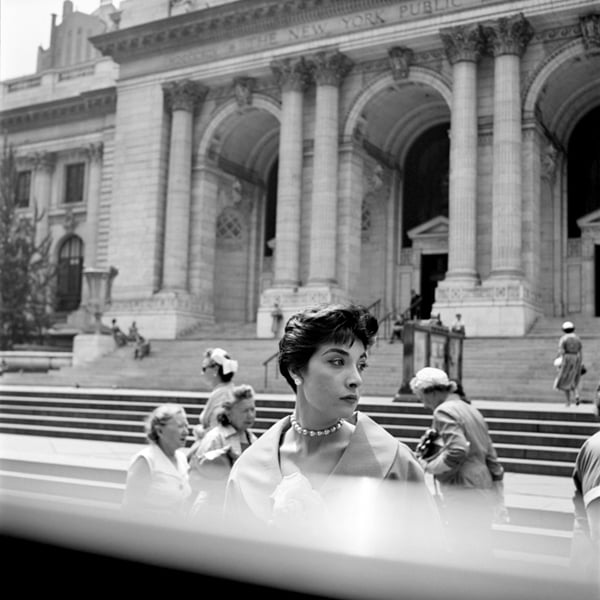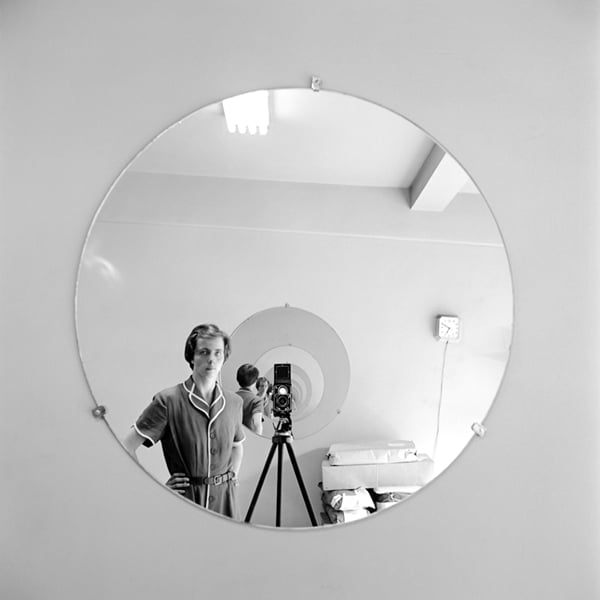Analysis
Legal Battle for Vivian Maier’s Legacy Escalates


Eileen Kinsella


Vivian Maier self-portrait from John Maloof and Charlie Siskel’s “Finding Vivian Maier.”
Photo: Vivian Maier. Courtesy of the Maloof Collection.
The New York Times has a thorough rundown of a very messy battle over the estate of the late reclusive photographer Vivian Maier, whose talent only came to light after her death in 2009, aged 83, and “nearly penniless and with no family.” Maier spent most of her life working as a nanny for wealthy Chicago families, quietly pursuing her passion for photography out of the public eye and producing poignant, documentary scenes of everyday life in Chicago, New York, and other American cities.
Since 2007, John Maloof, a former Chicago real estate agent who purchased tens of thousands of negatives for under $400, has been actively promoting and overseeing her work through commercial galleries (most notably with the prestigious Howard Greenberg Gallery), exhibitions, books, and a recent documentary that he helped direct, Finding Vivian Maier.
Now, another photographer and Chicago lawyer, David C. Deal, who has tracked down a distant Maier relative in France, has brought a lawsuit in an effort to name the Frenchman as the artist’s heir. His actions, say the story, are “threatening to tie her legacy in knots,” an issue which may mean her work will not be seen in public again for many years. Deal says he believes it is “profoundly unfair” that Maloof and others are profiting from Maier’s work instead of her heirs.
Maloof, who had earlier hired genealogists to find Maier heirs in France, eventually paid an undisclosed sum for rights to her work to an individual identified as Sylvain Jaussaud, a first cousin once removed of the artist (Maier’s mother was French). But Deal’s efforts turned up different results, a man named Francis Baille who lives in southeastern France. Baille, who had no clue of any link to Maier, has given permission for Deal to pursue recognition as an heir under American law, according to Randy Kennedy’s report.
Now, the state public administrator for Cook County, Chicago, has sent letters to Maloof and other sellers of Maier’s work alerting them of potential lawsuits over Maier’s assets. An interesting fact the piece points out: “Under federal copyright law, owning a photograph’s negative or a print is distinct from owning the copyright itself. The copyright owner controls whether images can be reproduced and sold.”
A representative for the public administrator’s office in Chicago, general counsel Joanne Zlotek, said complicated estate cases like this can take years to resolve.